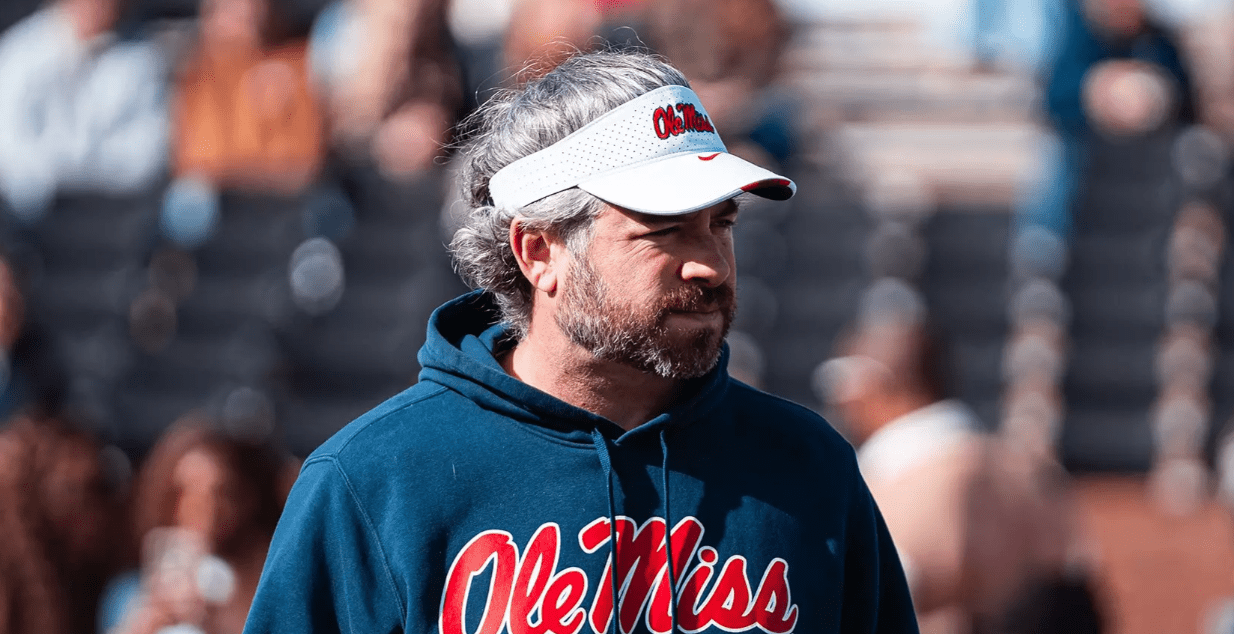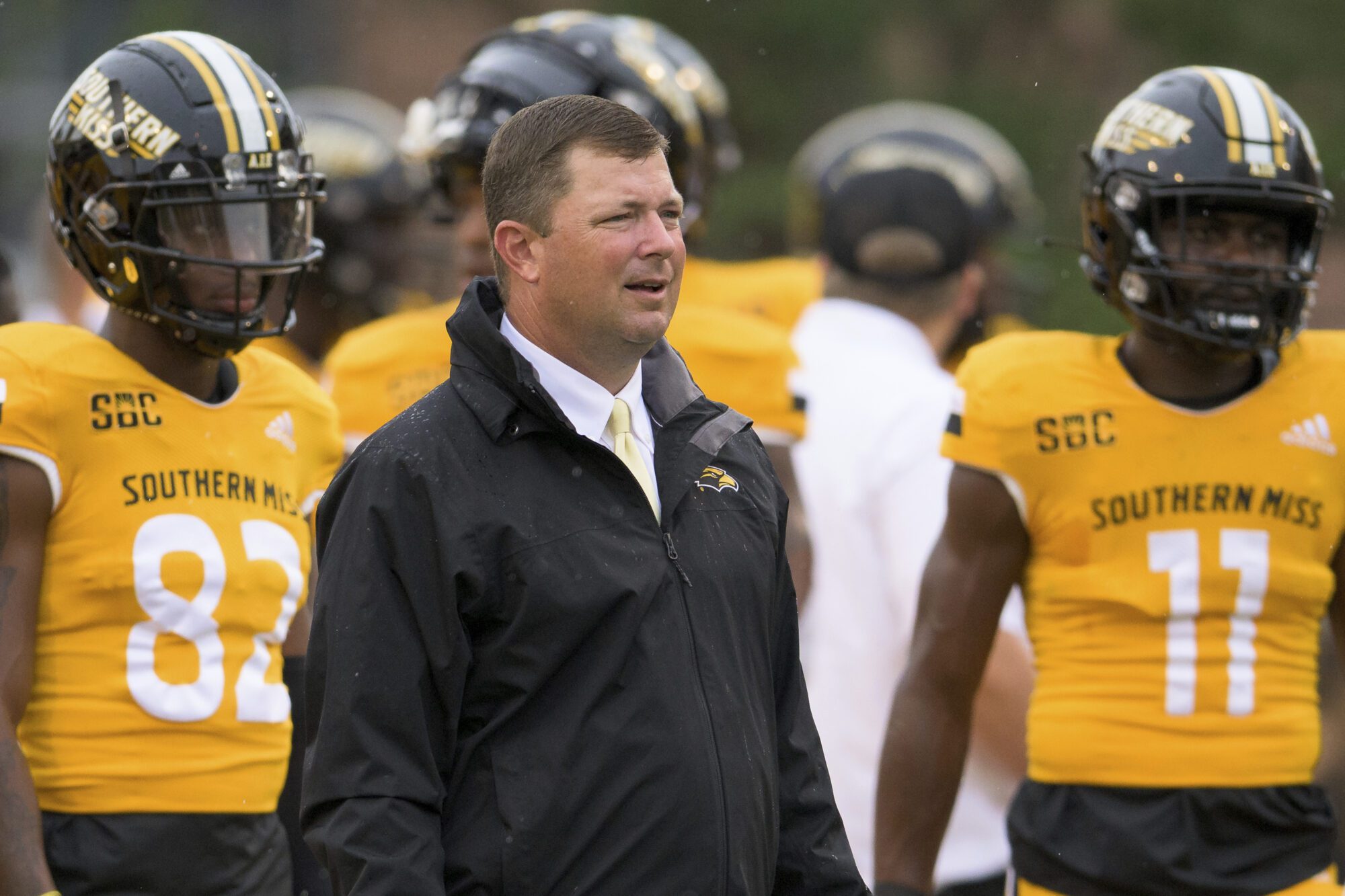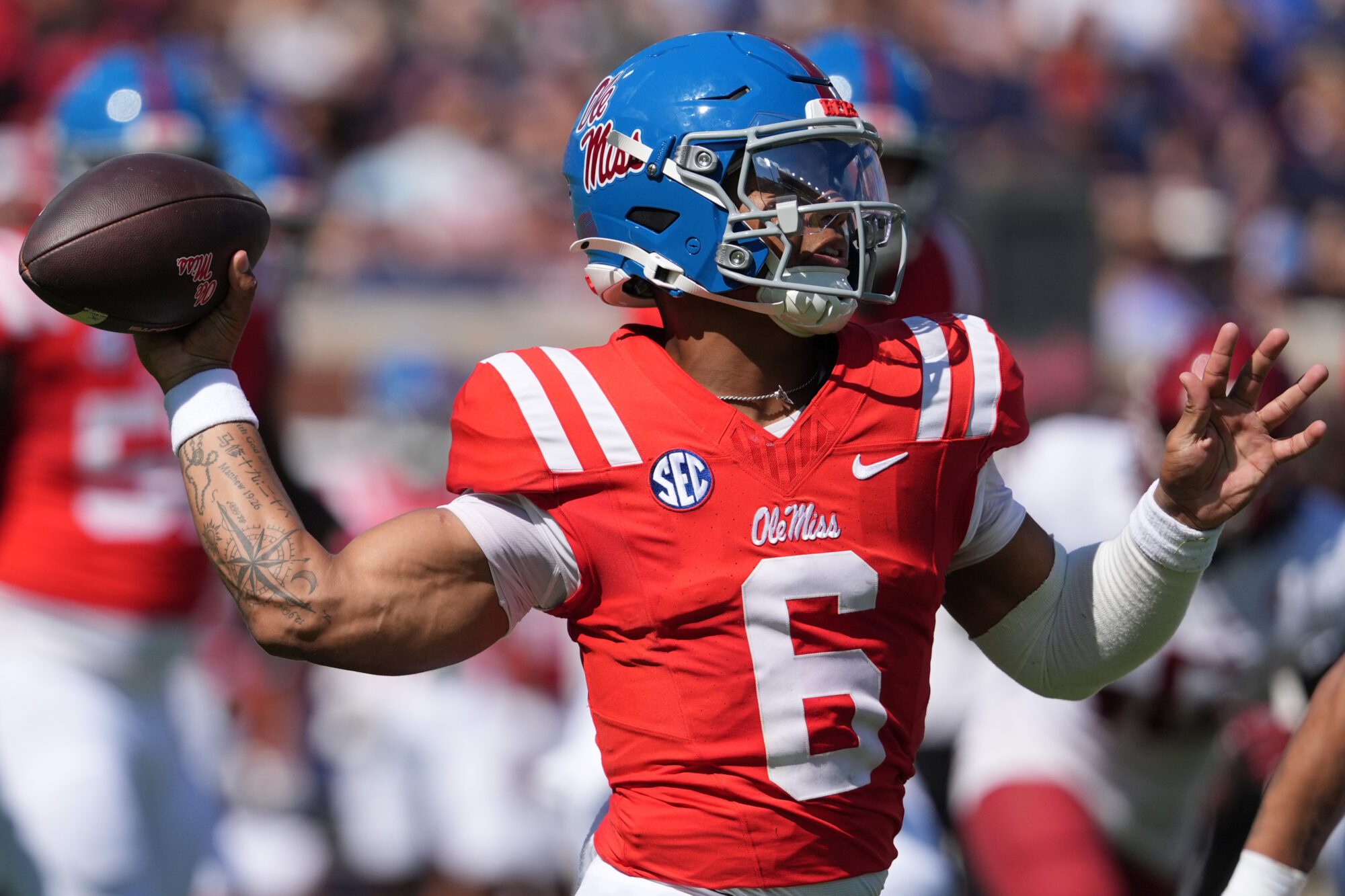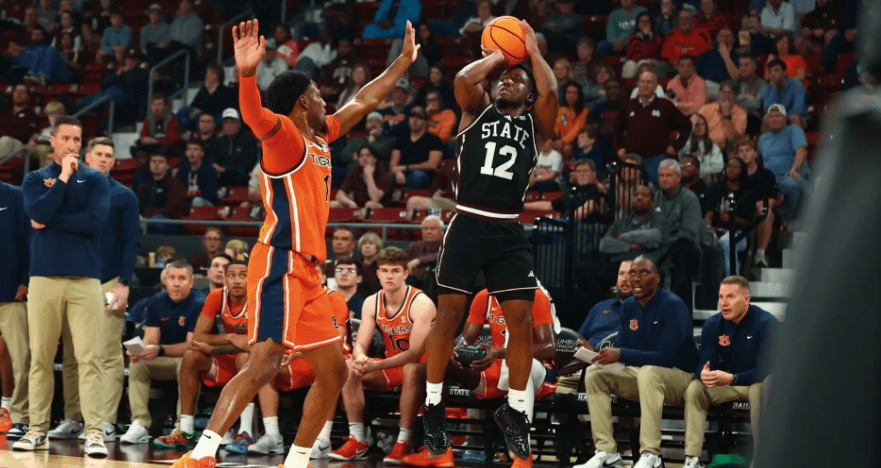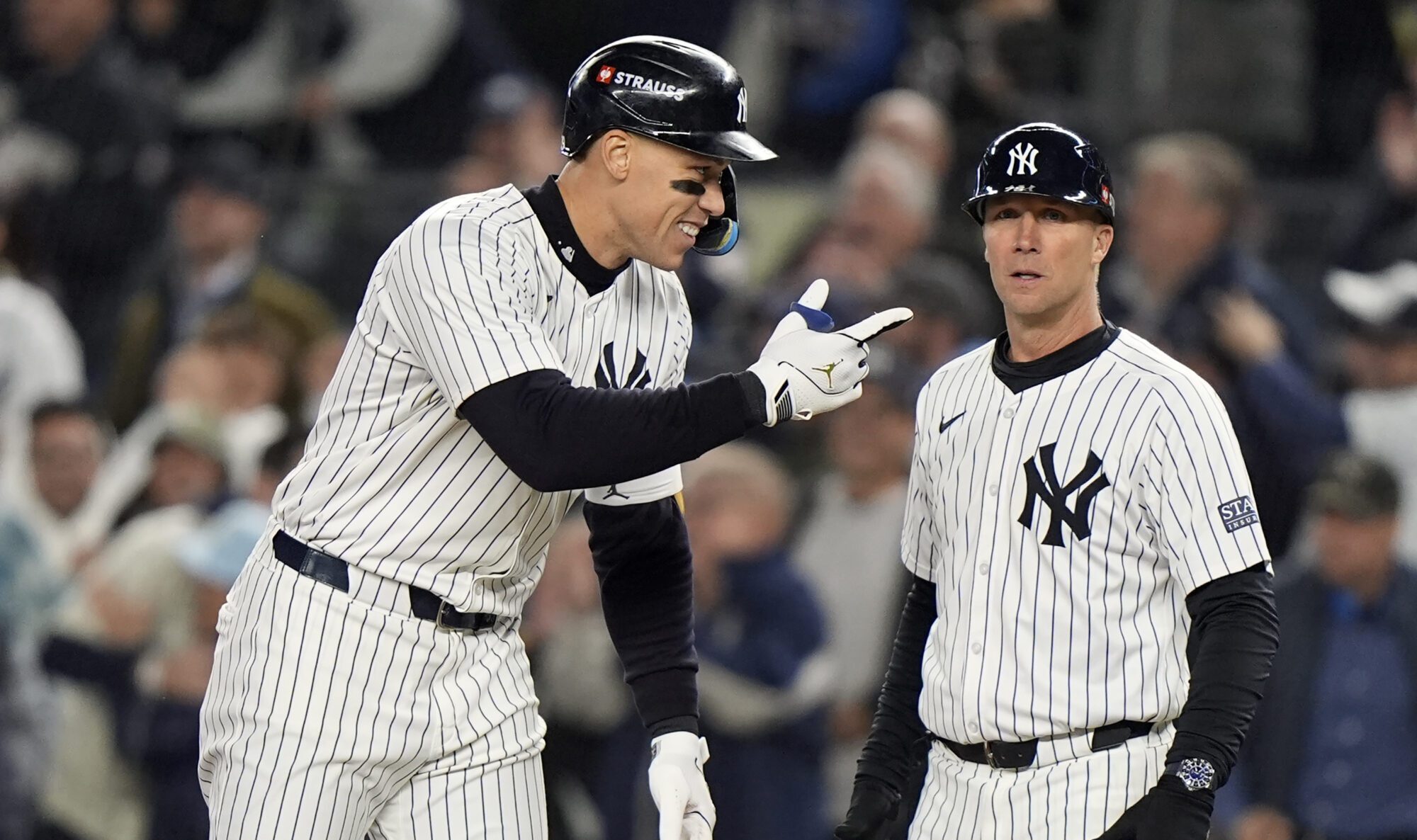
New York Yankees' Aaron Judge gestures to the dugout after reaching first base on a fielding error by Cleveland Guardians' Brayan Rocchio during the first inning in Game 2 of the baseball AL Championship Series Tuesday, Oct. 15, 2024, in New York. (AP Photo/Frank Franklin II)
- When the Yankees take the field in search of their 28th World Series against the Los Angeles Dodgers, former Mississippi State Bulldog Travis Chapman will be coaching.
One day Travis Chapman can pull grandchildren around him and tell them tales of his time as a Major League baseball player.
He won’t be telling whoppers. He played in one game.
If you’re looking for a Mississippi connection to the World Series, Chapman is it.
And as first base coach and director of infield for the Yankees, he’s a good one.
He played seven minor league seasons starting with Philadelphia, which drafted the Mississippi State star in the 17th round in 2000.
He played one Major League game, coming off the bench for the Phillies against the Braves in the seventh inning as a pinch-hitter on a summer day in 2003.
He flied out.
Now he impacts the futures of players for the most storied franchise in professional sports.
It’s not surprising that the Yankees identified Chapman’s potential as a coach after he spent time with the Kansas City, Cincinnati and Pittsburgh organizations before ending his playing career following the 2006 season.
Chapman, an infielder, was a good contact hitter for Mississippi State. He had 26 home runs from 1997-2000. He hit.404 as a junior and .350 as a senior.
The Jacksonville, Florida native helped the Bulldogs to College World Series appearances under Ron Polk in 1997 and Pat McMahon in 1998.
His last two teams finished in a regional and super regional.
“He was one of that Jacksonville bunch. We had some really good players from there,” longtime MSU baseball SID Joe Dier recalled.
Somewhere in Dier’s house are two sets of wrist bands Chapman gave to Dier’s son Reed, then elementary age, after CWS games.
Chapman’s single MLB appearance was significant for those who love the seemingly endless collection of baseball statistics. One game was enough for Dier to list him as an “MLB Bulldog.”
Chapman could put the ball in play and get on base, but his sneakiness came through as an infielder at various positions.
The infield fly rule is in effect when there are fewer than two outs and runners on first and second.
It’s widely misunderstood, but it exists to prevent the very thing Chapman try at least once as a senior middle infielder with the Bulldogs.
Because runners can’t leave their base until a ball is caught, the rule exists to prevent teams in the field from intentionally dropping an easy pop-up and trying to quickly turn a double play.
I saw Chapman give this a go. I never saw him pull it off, though maybe he did at some game I did not attend.
I vividly remember Chapman, as a middle infielder, allowing a pop-up to hit the ground in front of him, then quickly smothering it with the intention of throwing to second to start the double play.
Efforts like that force the base umpires to be on their game to enforce a rule that rarely comes into play. In this instance, the base umpire was up to Chapman’s challenge.
The infield fly rule was called, meaning the batter who hit it was out, as he should have been after getting off a weak swing.
The runners remained in place, and the Bulldogs had one more out to get.
Chapman showed a certain savviness in the attempt. He accepted the small risk that he would commit an error and make things worse for the greater reward should a base ump be asleep at the wheel.
As Mississippi State radio analyst Matt Wyatt, a college baseball aficionado, said about a fourth-down attempt in a recent football game, “No risk-it, no biscuit.”
Productive pro career although not in the Bigs
Chapman’s home run prowess remained the same in the minors, where he averaged fewer than six a year.
His contact hitting remained strong too. He finished his professional career with a .286 average, a .370 on-base percentage, 117 doubles and 286 RBIs.
Base coaches don’t get a lot of intentional air time during games, but they’ll often step into shots, so Chapman should be visible while at work in the days ahead.
He won’t be the subject of postgame analysis or be interviewed on field at the end of the deciding game.
But it’s a great career feat for Travis Chapman.
The memories will be just as strong and the rings just as big as those for players in the field.

